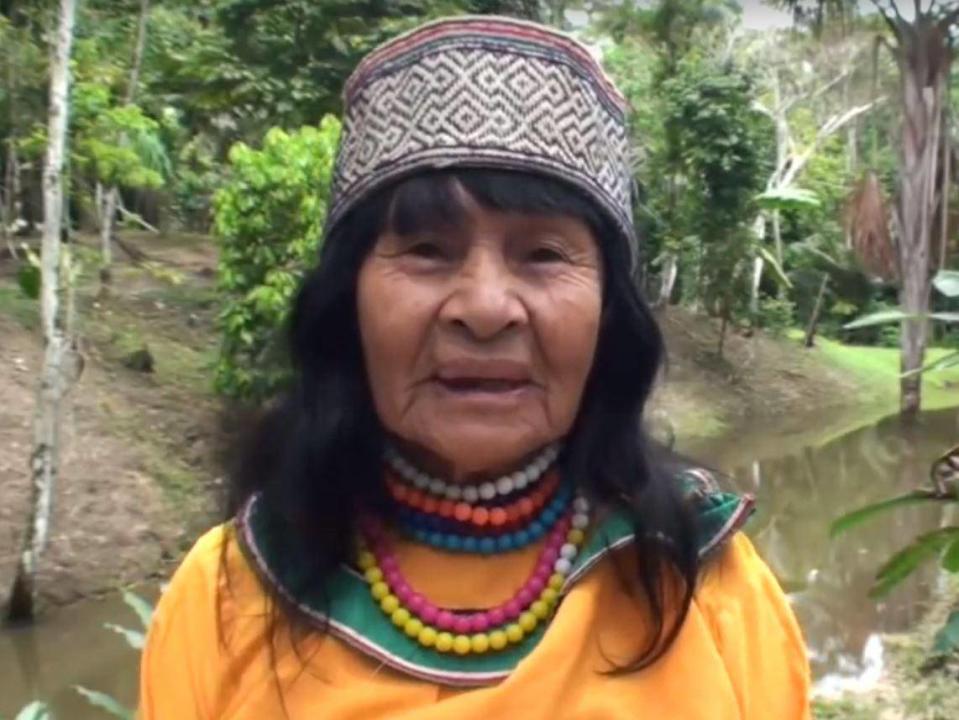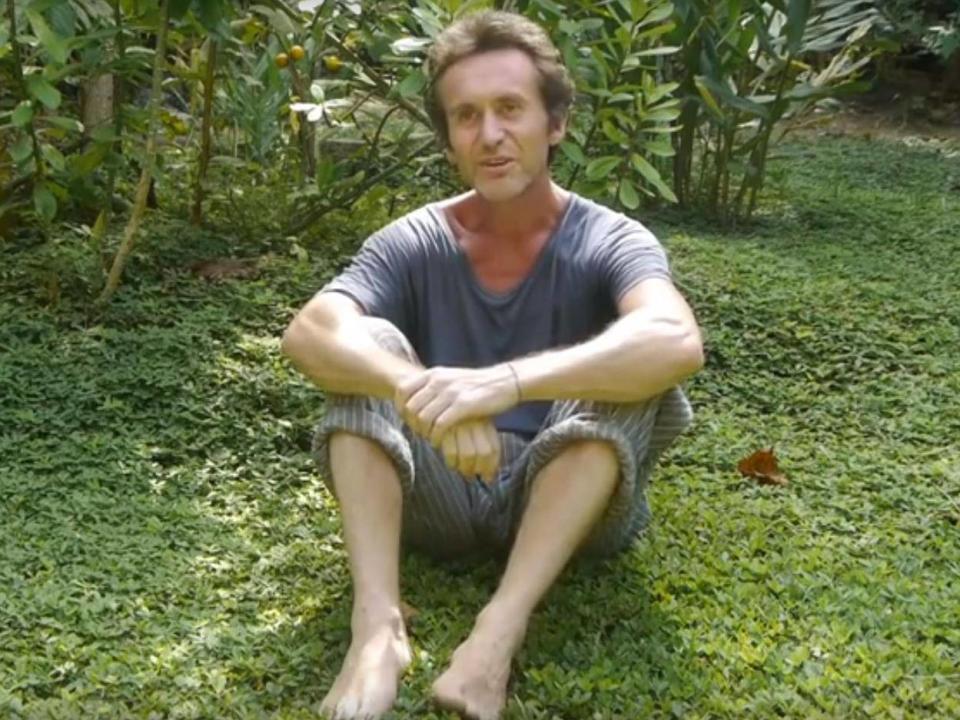Canadian man lynched in Peru rainforest after being accused of murdering shamanistic healer
A Canadian man has been lynched in the Peruvian Amazon after being accused of killing a local spiritual leader.
Sebastian Woodroffe, 41, a father of one, was dragged by the neck through a remote village following the death of Olivia Arevalo, a plant healer from the Shipibo-Konibo tribe of northeastern Peru, the country’s attorney general said.
Ms Arevalo was shot and killed near her home in the Ucayali region on Thursday. Mr Woodroffe, who had travelled to Peru to study hallucinogenic medicines, is thought to have been one of her clients.
Villagers believed him responsible for her murder, but Peruvian officials later backed away from reports that he was the prime suspect.
Police did not begin to investigate until a phone video appeared in local media showing a man, apparently Mr Woodroffe, begging for mercy while being dragged between thatch-roofed homes. He was then left motionless on the muddy ground.
On Saturday, officials exhumed his body from an unmarked grave where he had been hastily buried. El Comercio reported that his body had been found in San Pablo de Tushmo, in Yarinacocha district.
Mr Jimenez said prosecutors were exploring several hypotheses related to Ms Arevalo’s murder and that it was too early to name suspects in the case. No arrests had been made yet in relation with Mr Woodroffe’s death, he added.
“We will not rest until both murders, of the indigenous woman as well as the Canadian man, are solved,” said Mr Jimenez in a phone interview.
He said the man in the video was Mr Woodroffe and that an autopsy showed he had died by strangulation after receiving several blows to his body. Reports differed as to whether Mr Woodroffe was killed on Thursday or Friday.

El Comercio reported that there were two leading hypotheses regarding the murder of Ms Arevalo, who was in her 80s. First, that a Canadian citizen killed her when she refused to undertake an ayahuasca session with him; and second, that she was killed by a foreigner over a debt.
But two of Ms Arevalo’s children had rejected the second version of events in statements to police, the site reported, saying their mother had no debts and that she no longer performed ayahuasca sessions because of ill health.
Every year, thousands of foreign tourists travel to the Peruvian Amazon to experiment with ayahuasca, a bitter, dark-coloured brew made of a mixture of native plants.
The hallucinogenic cocktail, also known as yage, has been venerated for centuries by indigenous tribes in Brazil, Peru, Ecuador and Colombia as a cure for all sorts of ailments. But it is also increasingly consumed by Western tourists looking for mind-altering experiences, sometimes with deadly consequences.
In 2015, a Canadian fatally stabbed a fellow tourist from England after the two drank ayahuasca together in a spiritual ceremony a few hours’ drive from where Mr Woodroffe was killed.

Ms Arevalo was a staunch defender of indigenous people’s rights in the region. She also practised a traditional form of singing medicine that the Shipibo believe removes negative energies.
She can be heard singing a traditional plant song on the website of the Temple of the Way of Light, which describes itself as a plant-shamanic healing centre in the Peruvian Amazon.
The temple, which runs retreats for tourists specifically advertising ayahuasca, bills itself online as “a pioneering healing centre” and “the safest and one of the most respected and long-established plant-spirit shamanism centres in the Amazon rainforest”.
Explorer Bruce Parry features in one of numerous testimonial videos on its YouTube channel.
Mr Woodroffe, from the town of Courtenay on Victoria island in British Columbia, said before going to Peru that he hoped an apprenticeship with a plant healer from the Shipibo tribe would help his goal of changing careers to become an addiction counsellor using hallucinogenic medicine.
“The plant medicine I have the opportunity of learning is far deeper than ingesting a plant and being healed. It is not about getting ‘high’ either.
“It is true some of the plants I will be learning about do have a perception-altering effect, but these are a few plants out of thousands I will be working with,” he wrote on the Indiegogo crowd-funding website seeking financial help to advance his studies.
“I am in this for the long haul. This is more than a ‘job’ to me. I want not only for people to recover... I want to turn them on to the wonders of existence, and have them leave as a renewed friend and lover of this thing we call life,” he added.
CBC reported he was the father of a nine-year-old boy.
Additional reporting by agencies

 Yahoo News
Yahoo News 
